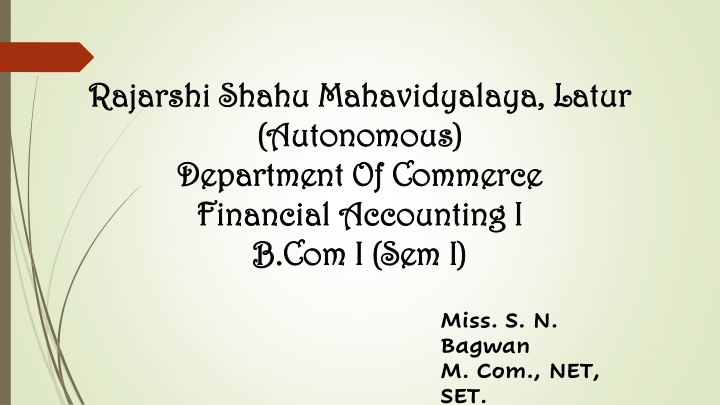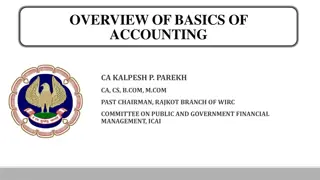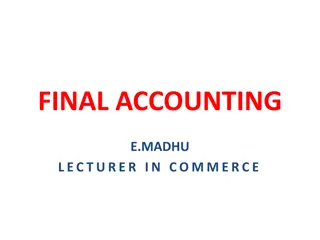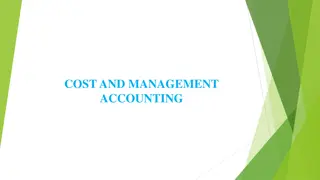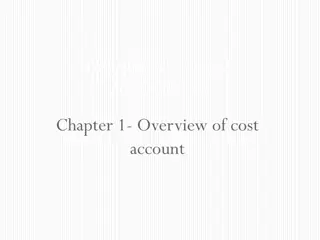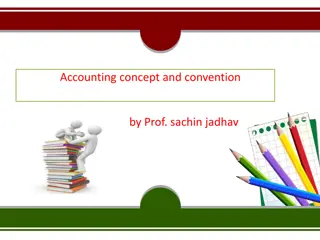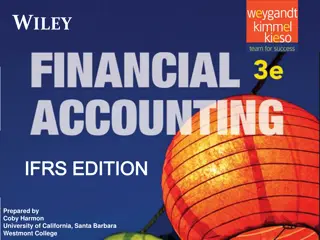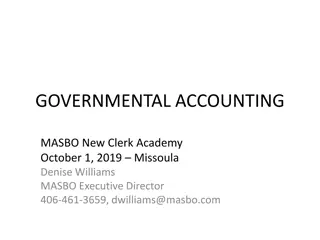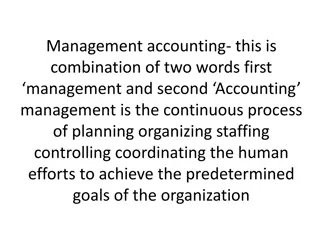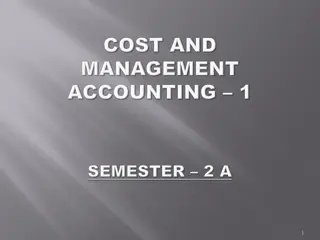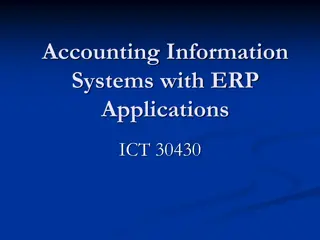Fundamentals of Accounting: Overview and Objectives
Understanding the fundamental concepts of accounting is essential in any organization. From defining bookkeeping to discussing the objectives of accounting, this content provides insights into the language of business, the importance of systematic records, and the rules of debit and credit.
Download Presentation

Please find below an Image/Link to download the presentation.
The content on the website is provided AS IS for your information and personal use only. It may not be sold, licensed, or shared on other websites without obtaining consent from the author.If you encounter any issues during the download, it is possible that the publisher has removed the file from their server.
You are allowed to download the files provided on this website for personal or commercial use, subject to the condition that they are used lawfully. All files are the property of their respective owners.
The content on the website is provided AS IS for your information and personal use only. It may not be sold, licensed, or shared on other websites without obtaining consent from the author.
E N D
Presentation Transcript
Rajarshi Rajarshi Shahu Shahu Mahavidyalaya Mahavidyalaya, , Latur (Autonomous) (Autonomous) Department Of Commerce Department Of Commerce Financial Accounting I Financial Accounting I B.Com B.Com I ( I (Sem Sem I) I) Latur Miss. S. N. Bagwan M. Com., NET, SET.
Introduction to Accountancy Introduction In all activities and in all organisations which require money and other economic resources accounting is required to account for these resources. In other words ,wherever money resource is involved accounting is required to account for it.
Meaning and Definition Bookkeeping Bookkeeping is a process of recording business transaction in the books of accounts in very systematic manner. According to J. R. Batliboi, bookkeeping is an art of recording business dealings in a set of books Accountancy Accountancy refers to a systematic knowledge of accounting. It explains why to do and how to do of various aspects of accounting. It tells us why and how to prepare the books of accounts and how to summarise the accounting information and communicate it to the interested parties. According to Kohler, Accountancy refers to the entire body of theory and process of accounting .
Accounting Accounting is often called as a language of a business. The basic function of any language is to serve as a means of communication accounting is also serve this function by communicating information to the users. According to American Accounting Association, 1966, Accounting is the process of identifying, measuring, and communicating economic information to permit informed judgements and decisions by uses of information.
Objectives of Accounting 1. To keep systematic records 2. To protect business properties 3. To ascertain the operational profit or loss 4. To ascertain the financial position of the business 5. To facilitate rational decision making 6. To communicate the results 7. To meet legal requirements
Rules of Debit and Credit Personal Accounts Debit the Receiver Credit the Giver Real Accounts Debit what comes in Credit what goes out Nominal Accounts Debit all expenses and losses Credit all incomes and gains
Thank You Thank You
